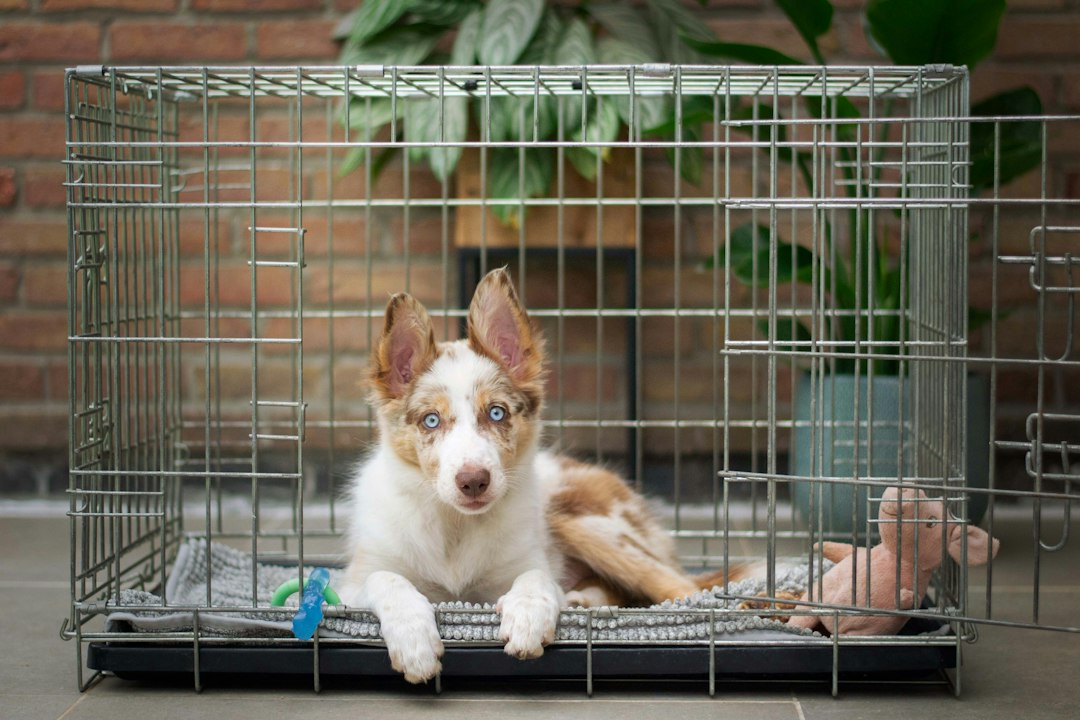Maximizing the Benefits of Kennel Training: Discover how kennel training can reduce anxiety, prevent destructive behaviors, and promote safety and well-being for dogs of all ages, breeds, and sizes.
Overview of Kennel Training Benefits
Kennel or crate training is a multifaceted approach to dog care that extends well beyond the simple confinement of a pet. It is a method deeply rooted in understanding and catering to a dog’s natural instincts for seeking a safe and secure den-like area. This form of training is crucial, not just for the immediate benefits of safety and security, but for its long-term impact on a dog’s psychological well-being and behavior. By providing a personal space, kennel training helps reduce anxiety, prevents destructive behaviors by giving dogs a space of their own, and significantly aids in the housebreaking process. The structured environment of a crate can also facilitate quicker learning of boundaries and rules within the home.
Moreover, kennel training is incredibly versatile, serving multiple purposes across a dog’s life span. It ensures peace of mind for dog owners during travels, as a properly kennel-trained dog will feel at ease in their crate no matter the location. This is especially beneficial during potentially stressful situations like vet visits or stays in unfamiliar places. For dogs, the crate becomes a familiar and comforting presence, offering a sense of safety amidst the unknown. The benefits of kennel training are widely recognized and advocated for by veterinarians, trainers, and breeders alike, making it a recommended practice for virtually all dogs. This training technique, when introduced and implemented correctly, can significantly enhance the bond between dogs and their owners, laying the foundation for a harmonious living arrangement and a well-adjusted, happy dog.
 The Basics of Kennel Training
The Basics of Kennel Training
Kennel training, when approached thoughtfully, teaches dogs to embrace their crates as a safe and inviting space. This training capitalizes on dogs’ instinctual desire for a den-like environment, which naturally provides them with a sense of security and belonging. By consistently associating the crate with positive experiences—such as treats, favorite toys, and cozy bedding—dogs learn to see it not as a form of confinement, but as their own private retreat where they can unwind and feel protected. This shift in perception is crucial for their overall well-being, as it not only alleviates anxiety but also curtails potential destructive behaviors. Such behaviors often stem from stress or boredom and can include unwanted activities like chewing on household items or inappropriate elimination, particularly prevalent during puppyhood.
Moreover, the process of kennel training fosters a structured routine, which is essential for a dog’s mental health and behavior modification. By establishing a regular schedule for crate time, dogs can better manage separation anxiety and adapt to being alone without distress. This structure extends beyond the home, preparing dogs for situations where they might need to be crated, such as visits to the vet or groomer. In these scenarios, the familiarity of the crate can significantly reduce stress, making the experience more manageable for both the dog and the owner.
Safety and Security Benefits
Kennel training extends beyond basic obedience, offering profound safety and security benefits that are essential for a dog’s overall well-being. One of the most significant advantages is how kennel training can transform a crate into a safe haven for dogs, especially during stressful situations such as vet visits or overnight stays. This familiar space not only reduces stress but also promotes faster recovery by providing them with an environment that feels secure and comfortable. In emergencies, a crate-trained dog is more likely to remain calm and can be more easily transported to safety, showcasing how this training is vital for both the dog’s and the owner’s peace of mind.
Furthermore, crate training is lauded by veterinarians, trainers, and breeders alike for its role in promoting desirable behavior and aiding in the adjustment to new situations. It establishes a clear routine for elimination, leveraging a dog’s natural instinct to keep their sleeping area clean, which is instrumental in housebreaking. Whether it’s handling the dog’s anxiety, preventing accidents in the house, or ensuring a secure environment, kennel training serves as a foundation for a harmonious relationship between dogs and their owners.
Behavioral and Well-being Advantages
Kennel training is a transformative approach that significantly enhances a dog’s behavior and emotional stability. By integrating the kennel as a safe and welcoming space, dogs learn to manage their anxiety and stress, especially in bustling household environments or during family events.
Furthermore, kennel training serves as a crucial tool for dogs with specific needs, such as those with a hunting background or rescued dogs adapting to a new home. For hunting dogs, a crate offers a tranquil haven to rest after a stimulating day, mirroring the quietude of the outdoors they are accustomed to. Rescued dogs, on the other hand, often carry the burden of past traumas and uncertainties. A kennel provides these dogs with a predictable and secure environment, which is invaluable as they learn to navigate their new surroundings. The stability of a personal space helps mitigate anxiety and fosters a smoother transition into their adoptive family life. Kennel training, when implemented with patience and empathy, becomes a cornerstone in building a trusting and therapeutic relationship with these dogs, affirming its role as a beneficial practice for enhancing canine well-being and behavior.
Specific Scenarios Where Kennel Training Is Beneficial
Kennel training transcends the everyday advantages, proving to be particularly crucial in certain scenarios that may otherwise pose challenges for dogs and their owners. For instance, when dogs are left outside for prolonged periods, they might engage in undesirable behaviors such as excessive barking, digging, or attempting escape. Kennel training can mitigate these issues by providing a safe and confined space, reducing the likelihood of such behaviors arising. Moreover, situations like air travel and grooming appointments can be stressful for dogs. The familiar environment of their crate offers a sense of comfort and security during these times, making the experiences less daunting for them. An example of this is when dogs stay overnight at the vet, where the presence of their crate can significantly reduce anxiety levels, thereby promoting quicker recovery. In the event of an emergency, it is helpful for your dog to be kennel trained for evacuations and safety measures without adding more anxiety and stress to the situation.
Tips for Successful Kennel Training
Embarking on successful kennel training requires patience, understanding, and a strategic approach that fosters a positive relationship between your dog and their crate. The initial step involves a gentle and gradual introduction to the kennel, ensuring that your dog perceives it as a safe and comforting space rather than a form of punishment. This can be achieved by leaving the crate door open and encouraging exploration with favorite toys or treats placed inside, allowing them to enter and exit at their own pace. Creating a positive environment within the crate is crucial, with the inclusion of comfortable bedding and perhaps a piece of clothing with your scent, to further enhance the sense of security and familiarity for your dog.
Conclusion: Maximizing the Benefits of Kennel Training
Kennel training stands as a cornerstone in the foundation of a well-behaved, secure, and happy dog, transcending the barriers of age, breed, and size. This method not only aids in behavioral development by instilling discipline and routine but also acts as a preventive measure against potential hazards, ensuring the safety and well-being of our canine friends. It’s a pathway to nurturing a stable and positive environment for dogs, allowing them to thrive in various situations—be it at home, during travel, or in the presence of strangers.
Recognizing the multifaceted advantages of kennel training, Off Leash K9 Training of El Paso, TX specializes in offering tailored training solutions that address the unique requirements of each dog. Their expertise lies in creating a positive and effective kennel training experience that enhances obedience, reduces anxiety, and fosters a deeper bond between dogs and their owners. By exploring the comprehensive training packages and innovative techniques available at Off Leash K9 Training of El Paso, TX, pet owners can unlock the full potential of kennel training, ensuring a harmonious and fulfilling relationship with their canine companions.


 The Basics of Kennel Training
The Basics of Kennel Training

